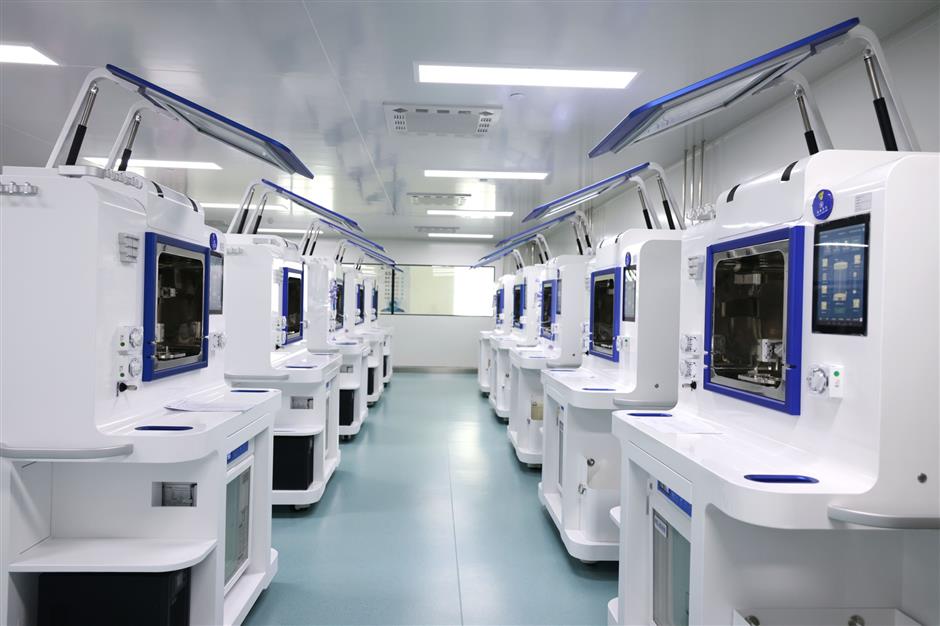Shanghai on track to become biopharma industrial hub
Multinational and local players are forging ahead with new investment and research initiatives to further elevate Shanghai's position as a research hub for biomedicine.
Shanghai has set a long-term vision of transforming the city into a world-class biopharma industrial hub and plans to turbocharge the biopharma industry.
By 2025, the city aims to have a biopharma manufacturing industry valued at 240 billion yuan (US$33 billion), with the total industry size exceeding 1 trillion yuan.
By the end of the first half of this year, Shanghai was home to 922 multinational corporation headquarters, and a total of 544 foreign-funded research and development centers, and it continues to be the destination with the most number of regional headquarters and R&D sites.

Danaher's life sciences affiliate division Cytiva unveiled its expanded Shanghai facility in Zhangjiang earlier this week.
Danaher's life sciences affiliate division Cytiva unveiled its expanded Shanghai facility covering 11,000 squremeters in Zhangjiang in the Pudong New Area earlier this week.
The expanded site offers a training capacity for about 2,000 technical and research staff every year, covering the whole biopharma process from process development to commercialization.
By expanding the scientific, digital, and training offering in China, Cytiva hopes to speed up local biotech companies' commercialization process through the most cost-effective measures.
Cytiva China President Edward Zhou said the updated functions respond to the needs of the fast-evolving biotechnology industry in China, especially in talent training, the adoption of automation and digitalization, and personalized therapies.
A latest fast track pilot scheme for import medicines for research purposes was put into effect in Shanghai in August, allowing a swifter import process for researchers and a more efficient response to market demand.
The city's whitelist for imported drugs and materials used for research activities would be updated on a monthly basis, instead of the previous time span of every six months, once the pilot scheme is upgraded.
"We welcome the new initiatives which are also beneficial for the biomedicine industry as a whole, and we're also pleased to see ongoing efforts and new stimulus measures to encourage collaboration between commercial service providers and local research institutions," Zhou added.

Shanghai's Huadao Pharma said it plans to file for regulatory approval for innovative CAR-T medicines by the end of next year.
Shanghai-headquartered HuaDao Biopharma (Shanghai) Ltd Corp said it has dedicated research efforts to not only new cell and gene therapies but also to relevant supply chain facilities and raw materials to ensure the most cost-effective treatment for patients.
Chairman Yu Xuejun said that apart from its headquarters in Shanghai, four manufacturing sites are under construction in Chonqing, Xi'an, Changchun and Zhengzhou to facilitate the transformation of innovative research results into new medicines.
Yu added that HuaDao Biopharma plans to file with Chinese authorities for regulatory approval for innovative CAR-T medicines by the end of next year, so home-made cell immunology treatment could become cheaper than import drugs.
Immunotherapy, which entails customizing cells from individual patients to help them fight cancer, requires higher standards for supply chain and production environment hygiene.
HuaDao said it has built a cell manufacturing facility coupled with its own single-use consumable materials and other relevant facilities with an estimated capacity for 50 patients per year when all the facilities are fully operational.

















